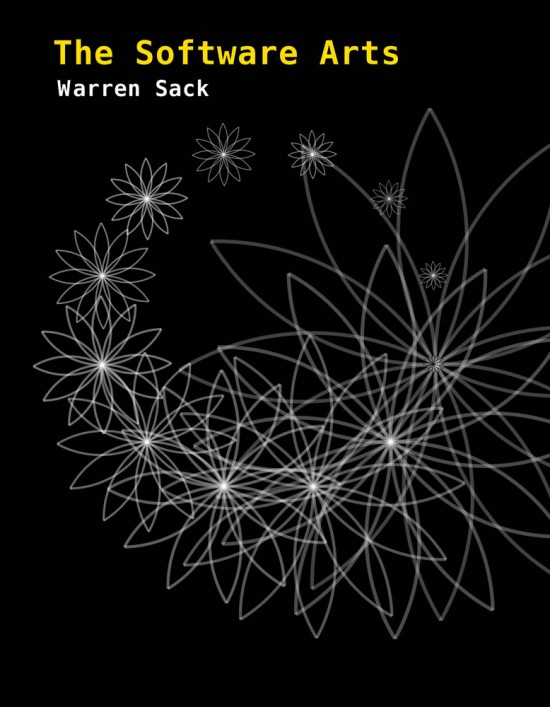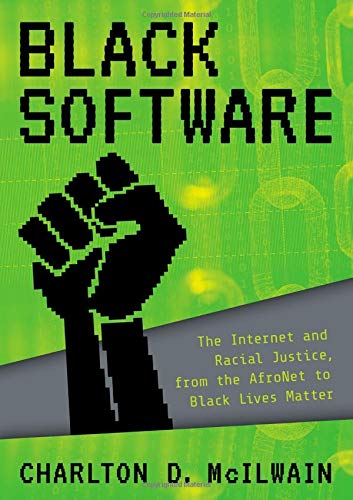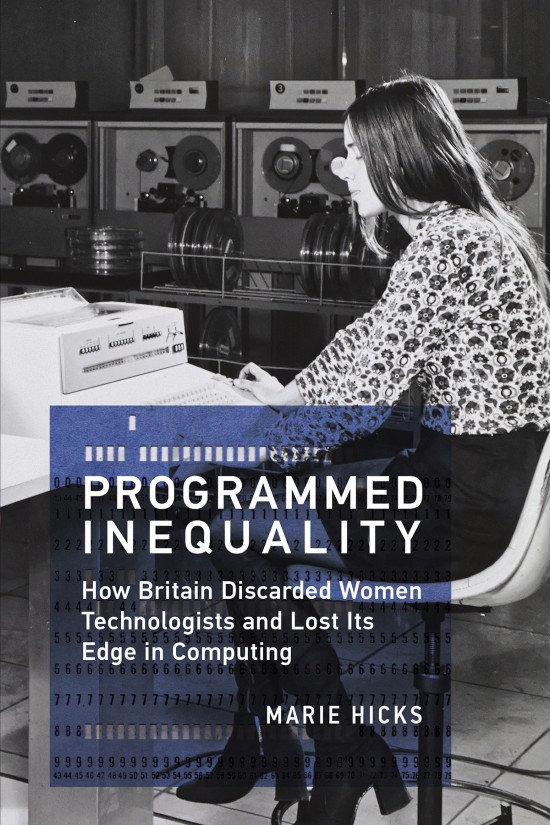Warren Sack: The Software Arts (2019)
Filed under book | Tags: · algorithm, art history, big data, computing, history of technology, language, logic, programming, software, software art, software studies, translation

“In The Software Arts, Warren Sack offers an alternative history of computing that places the arts at the very center of software’s evolution. Tracing the origins of software to eighteenth-century French encyclopedists’ step-by-step descriptions of how things were made in the workshops of artists and artisans, Sack shows that programming languages are the offspring of an effort to describe the mechanical arts in the language of the liberal arts.
Sack offers a reading of the texts of computing—code, algorithms, and technical papers—that emphasizes continuity between prose and programs. He translates concepts and categories from the liberal and mechanical arts—including logic, rhetoric, grammar, learning, algorithm, language, and simulation—into terms of computer science and then considers their further translation into popular culture, where they circulate as forms of digital life. He considers, among other topics, the “arithmetization” of knowledge that presaged digitization; today’s multitude of logics; the history of demonstration, from deduction to newer forms of persuasion; and the post-Chomsky absence of meaning in grammar. With The Software Arts, Sack invites artists and humanists to see how their ideas are at the root of software and invites computer scientists to envision themselves as artists and humanists.”
Publisher MIT Press, 2019
ISBN 9780262039703, 0262039702
xx+375 pages
PDF (19 MB)
Comment (0)Charlton D. McIlwain: Black Software: The Internet and Racial Justice, from the AfroNet to Black Lives Matter (2020)
Filed under book | Tags: · activism, afronet, black people, computing, history of computing, history of technology, internet, race, racism, technology

“Activists, pundits, politicians, and the press frequently proclaim today’s digitally mediated racial justice activism the new civil rights movement. As Charlton D. McIlwain shows in this book, the story of racial justice movement organizing online is much longer and varied than most people know. In fact, it spans nearly five decades and involves a varied group of engineers, entrepreneurs, hobbyists, journalists, and activists. But this is a history that is virtually unknown even in our current age of Google, Facebook, Twitter, and Black Lives Matter.
Beginning with the simultaneous rise of civil rights and computer revolutions in the 1960s, McIlwain, for the first time, chronicles the long relationship between African Americans, computing technology, and the Internet. In turn, he argues that the forgotten figures who worked to make black politics central to the Internet’s birth and evolution paved the way for today’s explosion of racial justice activism. From the 1960s to present, the book examines how computing technology has been used to neutralize the threat that black people pose to the existing racial order, but also how black people seized these new computing tools to build community, wealth, and wage a war for racial justice.
Through archival sources and the voices of many of those who lived and made this history, Black Software centralizes African Americans’ role in the Internet’s creation and evolution, illuminating both the limits and possibilities for using digital technology to push for racial justice in the United States and across the globe.”
Publisher Oxford University Press, 2020
ISBN 9780190863845, 0190863846
xi+296 pages
Video interview with author (Morning Joe, MSNBC, 2019).
Podcast interview with author (The Human and the Machine, 2019).
Reviews: Lori Emerson (LA Review of Books, 2021), Brian Alleyne (Computational Culture, 2021).
PDF (7 MB)
Comment (0)Marie Hicks: Programmed Inequality: How Britain Discarded Women Technologists and Lost Its Edge in Computing (2017)
Filed under book | Tags: · computing, history of computing, history of technology, technology, united kingdom, women

“How Britain lost its early dominance in computing by systematically discriminating against its most qualified workers: women.
In 1944, Britain led the world in electronic computing. By 1974, the British computer industry was all but extinct. What happened in the intervening thirty years holds lessons for all postindustrial superpowers. As Britain struggled to use technology to retain its global power, the nation’s inability to manage its technical labor force hobbled its transition into the information age.
In Programmed Inequality, Marie Hicks explores the story of labor feminization and gendered technocracy that undercut British efforts to computerize. That failure sprang from the government’s systematic neglect of its largest trained technical workforce simply because they were women. Women were a hidden engine of growth in high technology from World War II to the 1960s. As computing experienced a gender flip, becoming male-identified in the 1960s and 1970s, labor problems grew into structural ones and gender discrimination caused the nation’s largest computer user—the civil service and sprawling public sector—to make decisions that were disastrous for the British computer industry and the nation as a whole.
Drawing on recently opened government files, personal interviews, and the archives of major British computer companies, Programmed Inequality takes aim at the fiction of technological meritocracy. Hicks explains why, even today, possessing technical skill is not enough to ensure that women will rise to the top in science and technology fields. Programmed Inequality shows how the disappearance of women from the field had grave macroeconomic consequences for Britain, and why the United States risks repeating those errors in the twenty-first century.”
Publisher MIT Press, 2017
ISBN 9780262035545, 0262035545
x+342 pages
Reviews: Ksenia Tatarchenko (British Journal for the History of Science, 2017), Janet Abbate (IEEE Annals of the History of Computing, 2017), Lianne Gutcher (The National, 2017), Dominic Lenton (E&T, 2018), John Gilbey (Times Higher Education), Christophe J. Phillips (Isis, 2018), Mark J. Crowley (History, 2018), Megan Finn (Information & Culture, 2018).
HTML, PDF (removed on 2018-10-26 upon request from publisher)
Comment (0)
